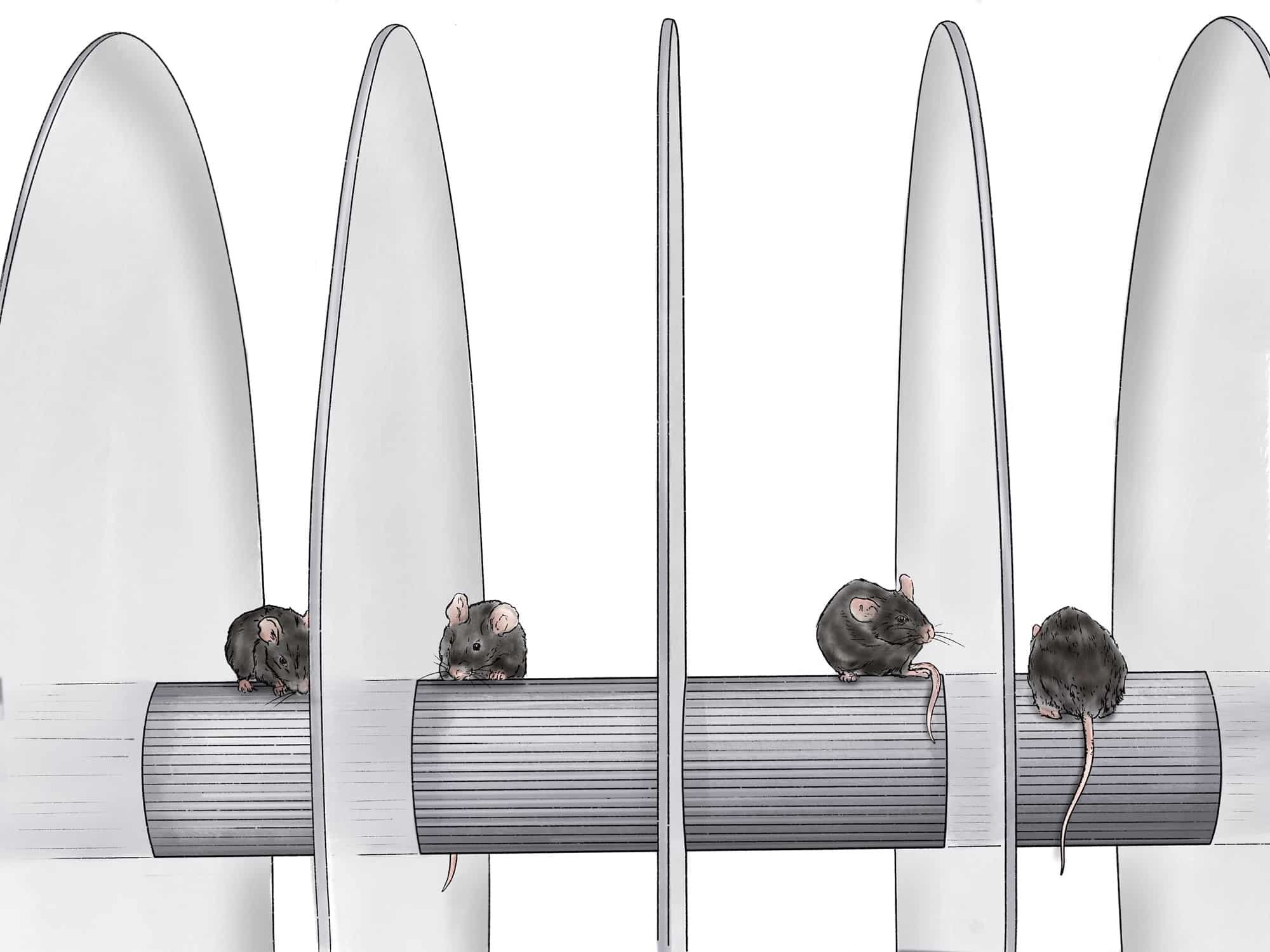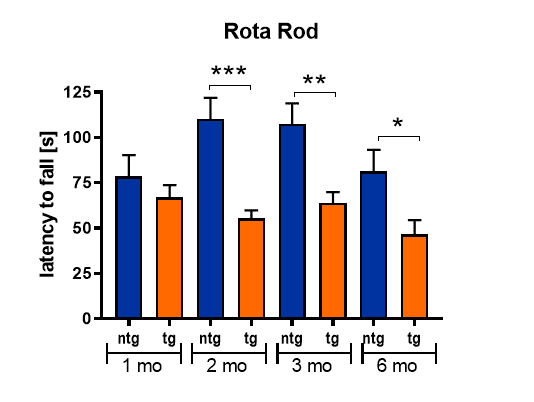The RotaRod test is one of the oldest tests used for assessing motor coordination and balance in rodents. It provides a quick and simple estimation of neuromuscular coordination. The apparatus consists of a motorized, circular rod turning at a constant or increasing speed. Rodents naturally try to stay on the RotaRod to avoid falling on the platform. This test is fully automated and allows testing of up to 4 animals simultaneously with vertical barriers separating the animals from one another.
The test starts with a training trial – the animals are placed on the rod that rotates at the lowest speed. If the animal falls off in less than a minute, it is immediately put back on the RotaRod until it stays on the rod for the whole minute. After training, the animal is allowed to rest for at least 5 minutes before it continues with three test trials. If a mouse loses its balance and falls onto an underlying platform, the rod will automatically stop and the latency to fall as well as the speed of the rod at fall is recorded.
The RotaRod test is commonly used in combination with other motor tests, such as grip strength and wire hanging test. To evaluate very subtle motor deficits, the beam walk test and the pasta gnawing test are good alternatives.
The test is commonly used to test basic motor deficits of animal models of different diseases, such as Parkinson’s disease, amyotrophic lateral sclerosis, Huntington’s disease, Niemann-Pick disease, Gaucher disease, Pompe disease, mucopolysaccharidoses, multiple sclerosis and many more.


Figure: RotaRod test of Line 61 mice. Latency to fall of 1, 2, 3, and 6 months old Line 61 mice and non-transgenic littermates in the RotaRod test. Line 61 mice develop motor deficits at an early age of 2 months that stay stable with age, while motor performance of non-transgenic littermates slowly worsens with age. n = 11 – 15 per group; mean + SEM; Two-way ANOVA with Bonferroni’s post hoc test. *p<0.05; **p<0.01; ***p<0.001.
